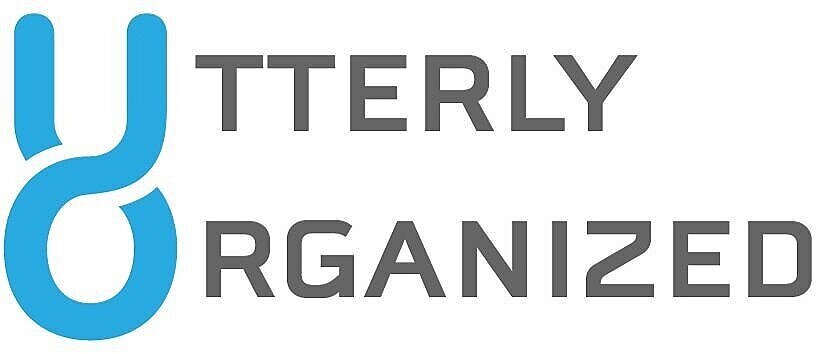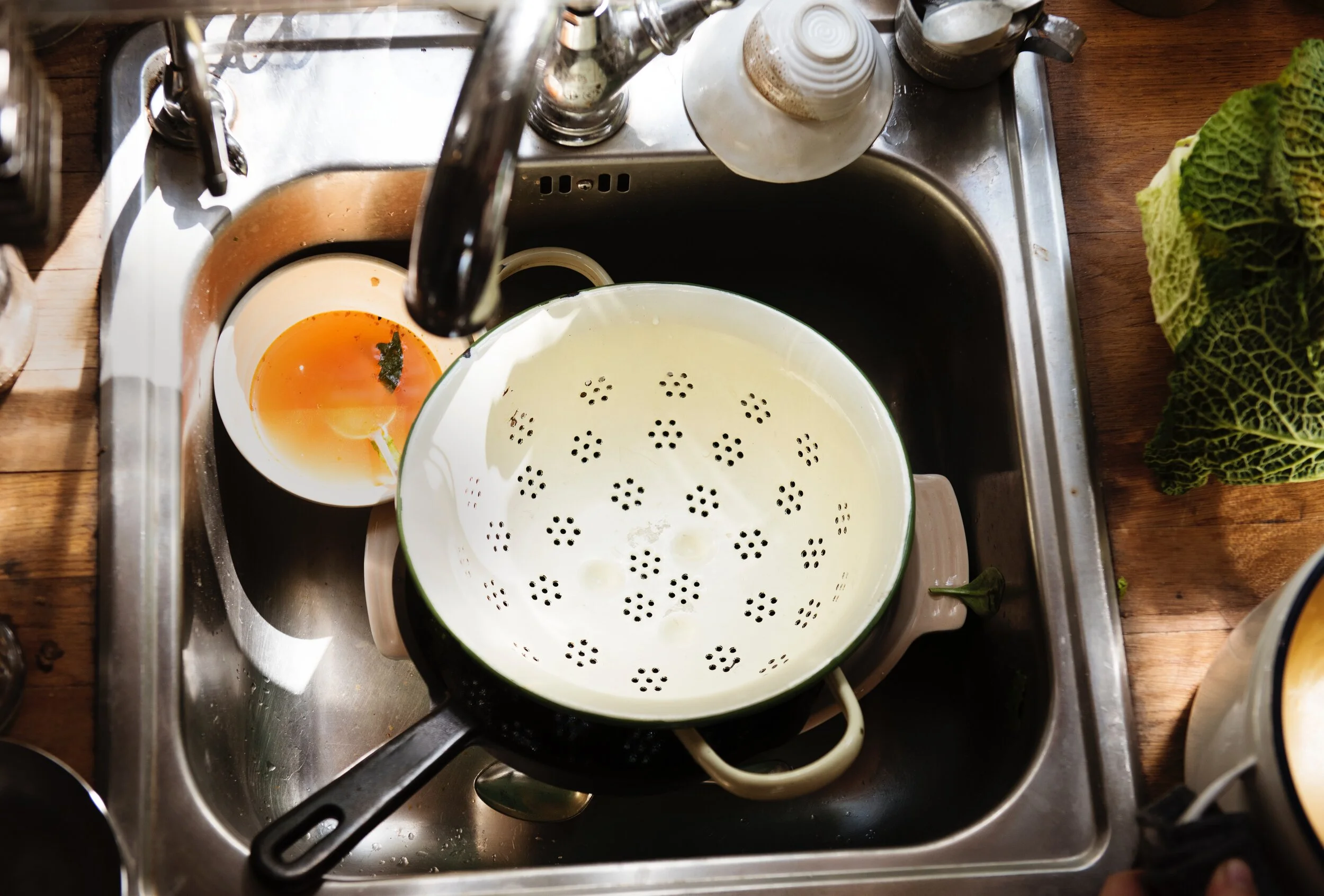Decluttering and Sorting
The Backstory to Clutter
Clutter forms for several reasons. Sometimes you may purchase or keep an item because you think it will be useful somewhere down the line (i.e.,a pair of shoes or article of clothing that you promise you are going to wear on that special occasion, but never do). Maybe you keep it because of sentimental reasons, or you spent a a great deal of money on it, so you don’t want to give it up. It’s tough to let go of something that you spent hard earned money on. Nonetheless, I believe that less is more.
It can be said that clutter is chaos, and this is absolutely true. Whether you’re aware of it or not, your clutter is a problem that needs to be addressed. Your housemates and guests most likely feel the weight of your unresolved clutter as well. Areas of clutter may include your physical mail box, your emails, kitchen dishes, laundry, trash, recycling, your bathroom, your bedroom closet or dressers, the garage, attic, basement, or playroom as well.
Even if you’re attempting to ignore it, your subconscious mind is deeply affected by clutter. In fact, “physical clutter in your immediate surroundings competes for your attention, creating decreased productivity and increased stress” (Mikael Cho, Lifehacker.com). Physical clutter can overload your sensations, leading to stress and inhibit your creative thinking as well.
Research done at Yale University shows that “two areas in your brain associated with pain, the anterior cingulate cortex and insula, light up in response to letting go of items you own and feel a connection towards: this is the same area of the brain that lights up when you feel physical pain from a paper cut or drinking coffee that’s too hot. Your brain views the loss of one of your valued possessions as the same as something that causes you physical pain. And the more you’ve committed emotionally or financially to an item, the more you want to keep it around” (Mikael Cho, Lifehacker.com)
However, clutter is not only physical, but mental as well. Anything that competes for your attention, such as emails, direct messages, notifications, and alerts from your phone can cause extra stress if left unattended.
We are not meant to live in chaos, but rather in order. However, it is important to note that people hold different thresholds for what is considered clutter and what is normal. While one person may want a completely blank bedroom, with only a bed and alarm clock, while another prefers to have a desk, some plants, posters, a dresser, and bookshelf. You have to reach a level of organization that works for you. Ask yourself if you feel at ease in the space you live in.
Methods of Decluttering
Whenever I’m decluttering and sorting I want to clear out an area, and take every object and put it into 1 of 4 categories; “Keep, Trash, Donate, and Sell”. First weed out all of the trash, then separate things you want to donate or sell, and you will be left with items you want to keep. When decluttering, it’s best to clear the floors first, then surfaces, and eventually drawers and shelves.
Closets often become over cluttered because we use them as a last minute place to store anything we are unsure about or don’t want to deal with at the moment. It is important to go through your closets and clear out anything you don’t use, want or need. If you are having trouble letting go of something, think of how an item could benefit someone else more than you. It’s better to have the space, and a clear conscience than to hold on to something you only use once in a blue moon.
If you are aware of your clutter but just can’t seem to get it under control without giving up, then it’s a good idea to look to a professional for help. As a professional organizer, I will meet you in your home, and help to speed up the process. It can be easier for clients to make decisions with some outside input. It can be tough to know where to start when facing your piles of debris. I always say, “It doesn’t matter where you start, just start. Knock out an easy area, gain momentum and confidence, and move on to the next area.” A combination of small steps leads to “Big Change”. It should be exciting for you, when you declutter a zone. You should feel proud of your work, and even give yourself a small reward for getting going. If you’re not up for or able to participate in the physical part of organizing, we will literally do the work for you. You can also choose to have vocal input or trust us to make the right decisions with your things.
In the long term you must be active daily in the fight to restore order and reduce clutter. First, every object must have a place or a home. Once you have that established you must have systems in place to get everything where it belongs. Daily routines are a must when staying on top of mail, dishes, laundry, and other household chores. As a rule, you should not go to bed if your home is not in order. If you keep up with it, you will get faster and faster with these tasks, and if you’re creative you can find ways to enjoy them. One tool I use to enjoy household chores is by listening to some music or a podcast, while I’m doing the chore.
Decluttering Tips
Do little things each day, which leads to long term success.
Set limits on what you buy and what information you consume, that way you can enjoy what you have rather than just having it to have it.
Limit the size of your storage space, so you are forced to have less stuff.
Do a monthly review of your closet, bookshelf, or any area where you want to declutter. Maybe get rid of one item per week.
Write down all of your commitments so you can see them all at once, and then decide if you really need to invest in all of them. Perhaps, select your top 4 or 5 commitments and scrap the rest.
Structure your daily routines so that you stay on top of areas of clutter. Plan out when, and for how long you will work on each chore. Write out a plan, and stick to it.
Start your day out strong. Use affirmations to encourage yourself.
Write a daily to do list. It can be helpful to tackle the most difficult tasks first, so you are not spending the day with those difficult tasks stuck in the back of your mind. However, some people work better by taking care of a few easy projects first in order to gain momentum.
Identify hidden opportunities. If you’re feeling frustrated, ask yourself, why am I feeling this way, and what can I do about it? Turn the situation around so that an obstacle becomes an opportunity.
If you’re feeling very stressed, turn to journaling. This will help you release your emotions, so that you can move forward in a positive way.
Exercise. Find out which kind form works best for you (running, biking, swimming, yoga, dance, ballet, sports, weight training, body weight training, etc.) Perhaps you can kill 2 birds with 1 stone, by completing a daily task that is physical such as folding laundry, vacuuming, or cleaning up the kitchen.
Practice gratitude. This will bring you to a safe space!
When sorting papers and files, you will want to have folders in alphabetical order. Each folder will contain a different subject (taxes, receipts, health insurance, dental insurance, important documents, “To Do” items, mail, shopping/groceries, coupons, etc.)
Labeling drawers or shelving can be very helpful for maintaining organization.
(This information has been brought to you by (Julie, McCormick, lifehack.org).







